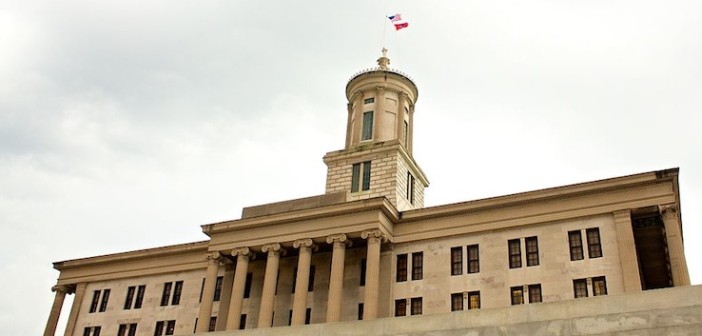By Jeff Keeling
Permission to increase the local hotel/motel tax rate and some tweaks to the state’s new annexation law are high on Johnson City leaders’ wish list for the 2015 state legislative session. Coming off of a week spent at the Tennessee Municipal League’s annual meeting – during which he also met with local lawmakers and gauged the political winds – City Manager Pete Peterson is hopeful about progress on both fronts.
Peterson said Monday that if the city can add 2 percent to the tax levied on hotel and motel guests in Johnson City, the resultant new revenue could go toward three primary areas: improvements to Freedom Hall, helping East Tennessee State University construct a larger performing arts center, and funding additional athletic fields.
On the annexation front, Peterson said several “unintended consequences” resulted from a restrictive annexation law passed last year. A few of those, he said, seem to have a chance of being amended in ways that will promote economic growth without gutting the intent of the law, which was to give non-city residents more say in whether they are annexed – primarily by requiring a referendum for any annexation.
State Sen. Rusty Crowe (R-Johnson City) and State Rep. Matthew Hill (R-Jonesborough) have introduced bills in their respective chambers that would allow Johnson City to raise that tax rate from the current 5 percent to a maximum 7 percent. In a phone interview with the News and Neighbor Monday, Peterson said a 2 percent increase would bring roughly $450,000 to $500,000 a year into city coffers.
In asking Crowe and Hill to introduce the bills, Peterson said city commissioners committed to using the money only for tourism-enhancing investments. Peterson hastened to add that the local lawmakers were not introducing a bill that would raise a tax.
“The only thing that they’re doing is introducing a bill to give the City Commission the authority to decide what they want to do with the tax,” he said. If the bill passes, commissioners would have to write an ordinance increasing the tax levied on hotel and motel guests in the city, conduct at least one public hearing, and vote in three separate readings to pass it.
City commissioners were moving toward such a tax rate increase last year. They had gained the support of the Convention and Visitors Bureau, the Chamber of Commerce and the local hoteliers, support Peterson said Monday they still have. City officials learned, however, that as a “home rule” city, Johnson City did not have the authority to raise the tax rate without state approval.
Unlike the current 5 percent tax proceeds, which are split evenly between the city and the CVB, any additional amount would stay with the city for investment in the three areas specified. Peterson said the CVB and Chamber boards have officially endorsed the rate increase with the money staying with the city, “and they would like the monies to be spent on those three projects that we talked about.
“The CVB is made up primarily of hoteliers and restaurant people, and they realize it’s a reinvestment that will help their businesses in the long run.”
Several cities in Tennessee have higher rates as approved by the legislature, and some are combined with county rates (Washington County doesn’t levy a hotel-motel tax.) Hotel guests in Knoxville, Nashville, Chattanooga and Clarksville all pay 8 to 10 percent lodging tax.
City Commissioner Jenny Brock said Monday she fully supported the increase. “I believe the investments the city can make based on that revenue are going to spur economic development and benefit our citizens long-term,” Brock said.
“The improvements we’ll be able to make are all things that will not just bring people in from outside the area to spend money in our city, but will be there for our own residents to enjoy.”
With respect to annexation, Peterson said he felt good about the chances of several elements of the current law being revised. The Tennessee Advisory Committee on Intergovernmental Relations (TACIR) reviewed the law over the fall and winter and has recommended the legislature consider several revisions. The City Commission recommended a few changes when it met last week, one of the most important to it being an ability to annex – subject to the law’s other requirements – so-called “non-contiguous” areas without gaining the approval of all county landowners between the city limits and the area proposed for annexations.
“There has been a lot of conversation about the non-contiguous annexation,” Peterson said of his take on the talk in Nashville. “It’s good for the city, it’s good for the county, and I think a lot of people recognize that there’s going to be chances for growth if non-contiguous annexation is allowed that perhaps would not occur within the county if a non-contiguous annexation was not allowed.”
Peterson said legislation moves quickly during session.
“Having a chance to go back and revisit this thing is not unlike a lot of statutes that are passed. You pass something, you see how it works, you go in and fine tune it, and make sure you can maximize what you’ve got.
“I think that’s the process that’s going on, and I’m hoping that whatever is adjusted this year is fair and equitable for everybody.”





